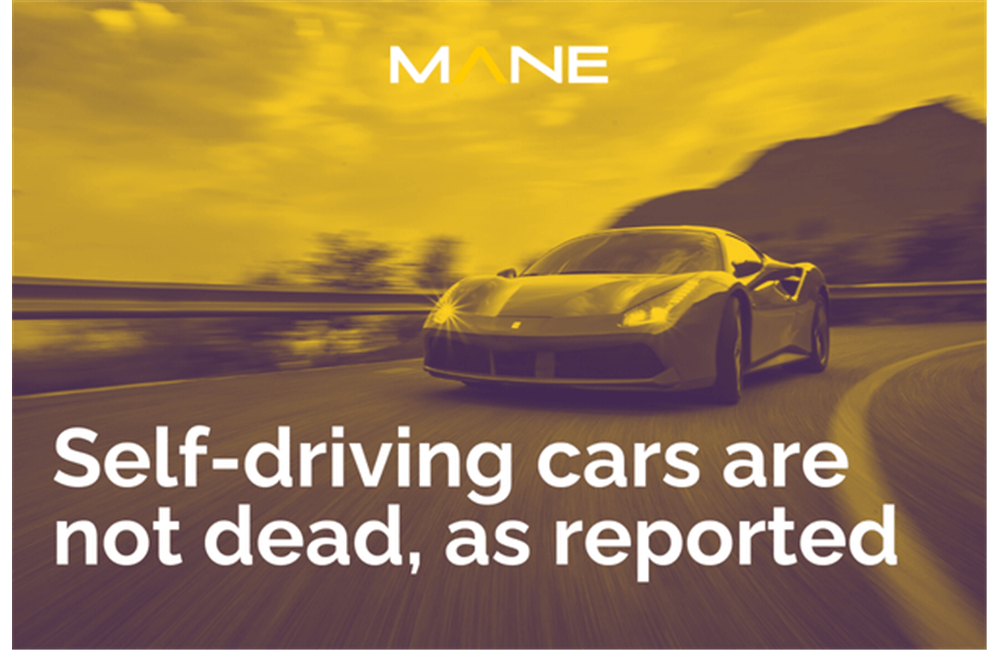Self-driving cars are not dead, as reported
02 Dec, 202210 minsOver recent weeks in the news, we have seen several reports claiming that self-driving cars ...

Over recent weeks in the news, we have seen several reports claiming that self-driving cars are on the way out. It came amid the closure of Argo.Ai, a self-driving startup which was funded by VW and Ford collectively. Whilst the shutdown was bad news for the likely future of such technology, further negative news in the sector has also shone a light on the question of the tech’s longevity.
Public companies have experienced a very big stock decline over the past year, especially amongst SPAC-funded startups. Add to this the shutting down of sidewalk delivery by Fedex and Amazon, and it’s clear to see where the declarations have come from.
With an estimated $100B plus being invested into the technology without full deployment yet, the idea that self-driving cars are a decade away is based on ideas rather than certainties. Despite the closures and negative news surrounding self-driving tech this year, there have also been promising developments.
MobilEye has a very successful IPO and major expansion in terms of operating projects from Waymo and Cruise have been witnessed. Both Nuro and Zoox have also reported healthy growth and have even set in motion new manufacturing processes.
There is obviously clarification to be made, emerging tech of this category requires solidity. With all of the money that has been invested so far, self-driving could transform the $5 trillion dollar ground transport industry. As one of the most ambitious software projects attempted in history, those that succeed will be able to justify investments so far.
What does the future of self-driving look like, then?
There’s no doubt that Argo.AI closing shocked the industry and brought up a plethora of concerns. Though most self-driving OEMs have reduced their operations in the last couple of years, excluding Tesla, the startups in the tech sector are definitely on the right tracks.
Argo hasn’t released too much information about what went wrong, other than they were on an upwards trajectory when VW and Ford decided to call it quits. Poor market conditions could have been the culprit as many companies have had battles with raising money over the past year.
There is some good news certainly worth highlighting in the area of self-driving cars which proves they are not dead. Cruise expanded its service area in San Francisco and plans to deploy to Phoenix and Austin by the year-end. It also announced that 500,000 autonomous miles were completed in San Francisco without a safety driver present.
Waymo has also expanded its services to Phoenix, which includes transporting people to and from the airport. The company also currently charges passengers for inner city travel via its self-driving vehicles in San Francisco too.
Zoox, another key player, has invested billions into constructing a huge factory in order to manufacture its custom cars. Nuro has followed suit.
MobilEye has added 30% onto its IPO and Starship has added a number of new service areas to its coverage as well as announcing a 4 million paid investment in autonomous deliveries.
It is clear that anyone who was never committed to the future of self-driving cars are pulling away. However, the players that are invested are making it known.
Whilst the technology isn’t developing at the speed many had hoped, it's not far from the predicted timelines that were stated a decade ago. In the next few years, we could see great developments and robocars deployed on larger scales here, there, and everywhere.



